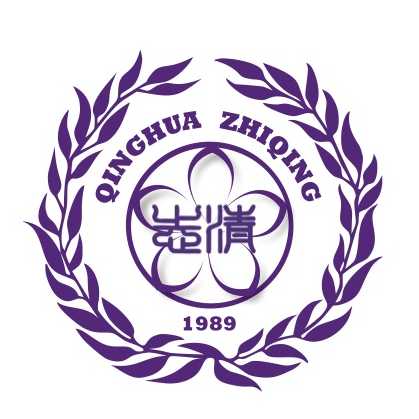How is Chinese leadership different to that of the West? What’s it like to work for a Chinese boss? If you’re looking to find out how Chinese managers differ to their Western counterparts, you’re in the right place. In this article, we’re going to outline the key characteristics of Chinese management in the workplace.

It’s a badly kept secret that China, both historically and in modern times, has a thing for authoritative leadership. It doesn’t stop at political leadership, either, as hierarchy can be seen and felt throughout every layer of Chinese society.
Chinese management is influenced heavily by Confucian values and often viewed, rather sexistly, as “fatherly" leadership. To be a good leader is to be a good 君子 (jūn zĭ), a gentleman, a person of inspiration.
Small family businesses are a prime example of modern-day authoritarian leadership in which the head of the household assumes full control over a company’s day-to-day activities. All decisions are made by the person at the top, the 家长 (jiāzhăng).
Such one-sided leadership can result in nepotism, as the boss of a family businesses tends to fill positions of responsibility with relatives or very close friends. Important departments, such as finance and marketing, will likely be occupied by the boss’s siblings or cousins.
In these types of firms it is very hard as an externally-hired employee to be promoted to a position of responsibility – a kind of glass ceiling that separates the outsiders from the family.
Chinese leaders are known to be more interpersonal and humanistic than their Western counterparts. A harmonious society is at the very heart of Chinese Confucianism, and Chinese managers seek to build happy and inclusive work environments.
Chinese leaders focus on building team pride, referring to success as a collective team effort and ambition, while carefully avoiding pointing out individual weaknesses when failure does occur. Managers often take on a parental role and see their employees as members of their family.
The downside is that much is expected of workers in return. Face, like 关系 (guānxì), is an important concept in China’s business environment. When a team encounters trouble or failure, the leader usually opts not to pick out individual errors and weaknesses in order to save their employees’ ‘face’. Confrontation should be completely avoided in the Chinese workplace.
For example, if a junior co-worker was to point out an issue that a senior worker may have overlooked, this would be seen as causing the senior employee to lose face, thus people tend to avoid commenting on others’ work. Likewise, senior employees may approach junior employees for help and advice even though they might already know what they are doing. This is an act of ‘face giving’ as it shows they respect their colleagues who are at a lower level.
This is a massive contrast to, let’s say, England, where criticism of a person’s work method would not translate as a personal assault, and employees, however junior, are encouraged to speak their minds.
Guanxi is a vital part of Chinese business culture, and many small family businesses completely rely on their guanxi circles. It is an unwritten rule in China that if there is no guanxi between two people, there is no trust, and thus no potential for business.
Guanxi, roughly translated as “relationship”, can range from attending the same middle school, to knowing a mutual friend, or even simply coming from the same area. This trust can result in easy business relationships.
Chinese leaders place great trust in partners with who they have guanxi, regardless of how strong or weak that guanxi is. They also tend to distrust foreigners and those who they share no guanxi with. However, even as a foreigner, if you know someone who works in a company and you manage to get a job in that company, you have struck up some guanxi that will likely go a long way towards keeping you on the good side of your Chinese manager.
In some cases, guanxi is effectively the very foundation for doing business in China,. Some bosses will strike a deal without even singing a contract – an agree first, talk later approach. Westerners, on the other hand, are more willing to make deals with people they don’t know, as long as a contract is signed.
China remains a relatively conservative society that likes to take the ‘safer’ option. Chinese leaders tend to place great emphasis on long-term stability and performance as opposed to the short-term profit-making culture of the West.
Chinese leaders can be much slower at making decisions as they like to balance many factors and look at all sides of the argument. So, if you’re approaching your Chinese manager and arguing for change or expecting your company to be leading the industry, you might have to be patient!
Lastly, there is a striking and very clear power gap in China between higher and lower level employees. The top boss in a Chinese company will rarely come down to the ‘shop floor’, engage in general chit-chat with the team or socialise with you outside of work hours. They only time you will probably see them is when they’re asking for you to work overtime or a for work-related favour!
Have you worked under a Chinese boss? If you’ve got anything to add, post it in the comment section below!
| Hot New Jobs recommended for you |
|---|

Admiral Farragut Academy
|

Beijing-Dublin International College
|

Hobo Education
|

Longitude International Education
|

Sino-Canada School
|

China Daily -Wuxi
|

BNU-HKBU United International College
|

Country Garden Schools
|

Springfield Kindergarten
|

Beijing Brookes Technology and Education Limited Company
|
| View More Jobs |
Warning:The use of any news and articles published on eChinacities.com without written permission from eChinacities.com constitutes copyright infringement, and legal action can be taken.
Keywords: 5 Key Characteristics of Chinese Management in the Workplace
All comments are subject to moderation by eChinacities.com staff. Because we wish to encourage healthy and productive dialogue we ask that all comments remain polite, free of profanity or name calling, and relevant to the original post and subsequent discussion. Comments will not be deleted because of the viewpoints they express, only if the mode of expression itself is inappropriate.
Please login to add a comment. Click here to login immediately.